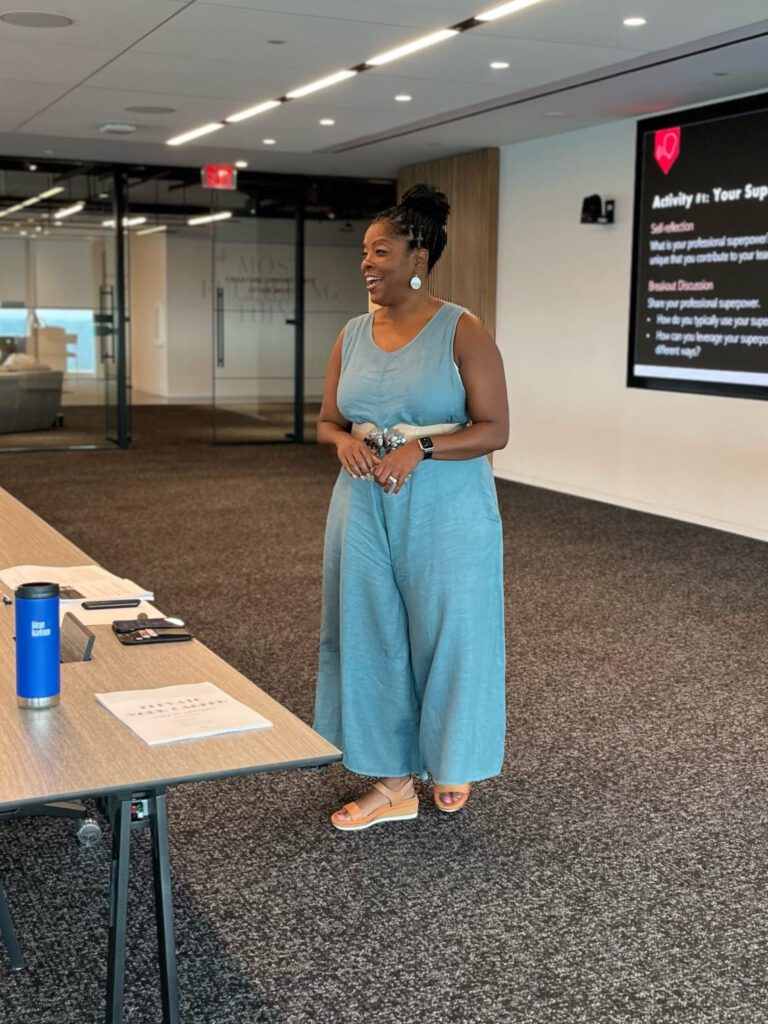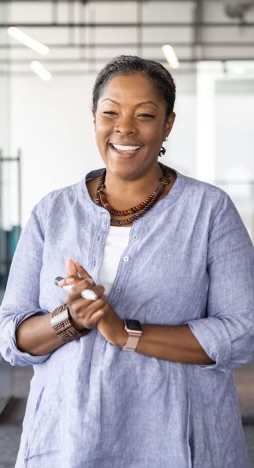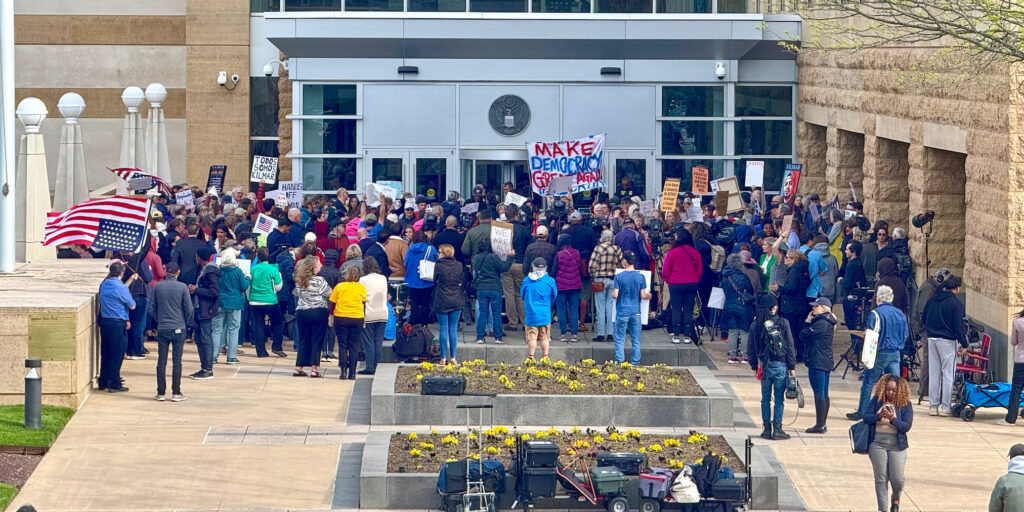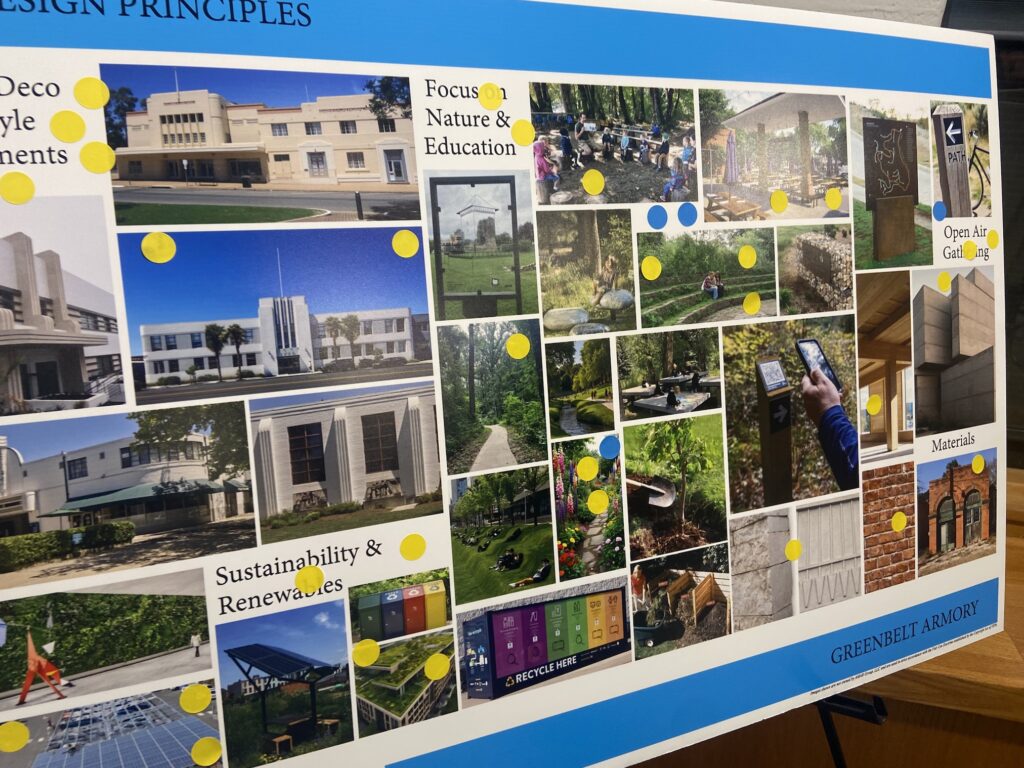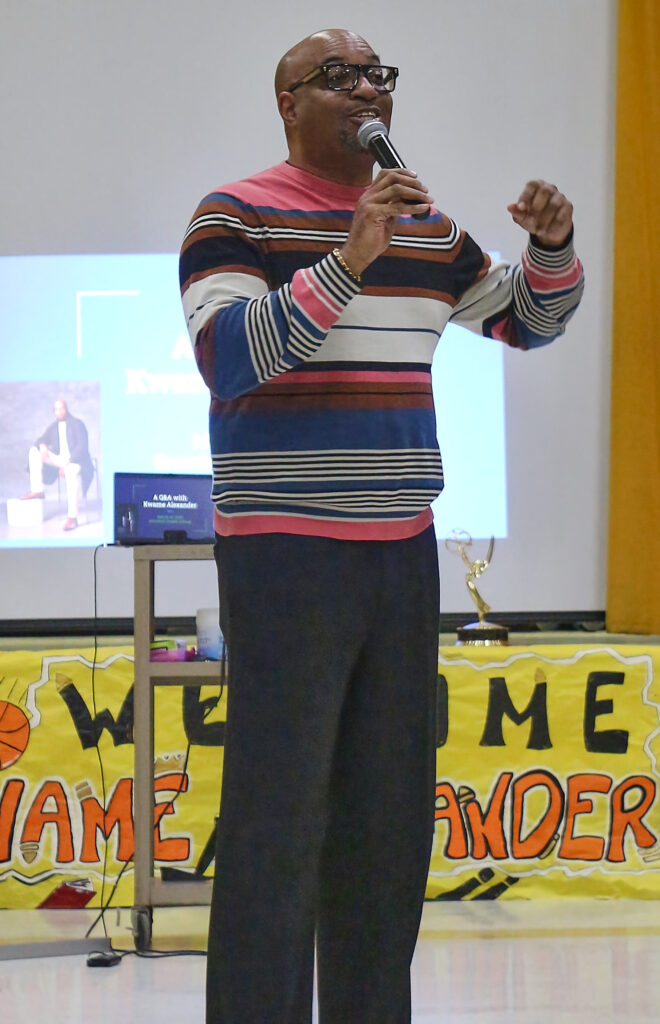Danielle Mc-Kinney, Greenbelt’s first African American woman elected to city council, is familiar with firsts in her family. Her mother was the first Black woman in the first class of women at St. John Fisher University, and became the first Black woman dean of students at Rensselaer Polytechnic Institute. Her brother became the first Black assistant general manager in the National Hockey League for the Florida Panthers.
Growing up in Albany, N.Y., McKinney had no Black teachers before college, but having two college-educated parents opened doors for her. As an eighth grader, McKinney attended Space Camp in Huntsville, Ala., and went to Spain as an exchange student at the age of 15. These experiences taught McKinney how to get to know people from different backgrounds. She studied educational leadership and policy at the University of Maryland, and thought, “If I’m going to be doing policy work I need to understand some of the issues that are going on in our urban schools.” So she taught fifth grade with Teach for America in Long Beach, Calif., where she had 35 students, with two thirds as second-language learners. Her husband is a teacher at DuVal High School. McKinney currently works in training and development for Marriott and has lived in Greenbelt for five years.
McKinney’s top priority is to be a consensus builder and
listener. She values bringing underheard voices to the table, and suggests that more flexibility, such as holding council meetings in different locations around the city, could help residents bring their issues before council. “People might have transportation or childcare issues or work conflicts,” she said. McKinney commends the city manager for putting council meetings on Facebook live, Zoom and Instagram. “We need to do a little more digging,” she said, “to find where those channels are, and figure out how to frame the story and collect stories that are representative of all the different people. One of the reasons I started getting involved in the community was that there was not a lot of information coming to the newest part of Greenbelt in Greenbelt Station” (where McKinney resides).
McKinney wants to bring more young people onto the youth advisory committees. “We have to think differently about how to reach out to the kids. The application process may not work,” McKinney said. “Maybe we go to kids’ night at the Youth Center. I would love to include kids from 7th and 8th grades.” McKinney admires the Boys and Girls Club, which holds basketball games every Saturday at Greenbelt Middle School, stating, “It’s important that we connect with the people who are already doing the work.”
McKinney has a passion for gardening. On her balcony she has grown Brussels sprouts, Swiss chard, romaine, arugula and herbs, and she loves to make salad dressings with what she grows. Her grandfather, who grew up in South Carolina, shared the love of gardening with her. After being on a waitlist for four years, she managed to get a garden plot on Gardenway. In the 10 x 50-foot space she put in six 4 x 6 raised beds. “My father came down and helped me put up a shed,” she said. She plans to put in a rain barrel with solar timed drip irrigation. Growing food to increase our local food supply is important for McKinney. “We have the space to grow,” she said, describing space-conscious ways to grow food without impacting Greenbelt’s tree canopy.
McKinney is determined to make the most of green spaces around Greenbelt Station. “The Neighborhood Design Center in Hyattsville partnered to do a green space master plan,” she said. “We did community walks and mapped out how to bring more facilities onto that side of town: basketball courts, pickleball, dog parks, gardens. I want to figure out from a budgetary standpoint when we can move forward, and bring in foundation partners to help fund it.”
McKinney continues to be inspired by the memory of Ric Gordon and his support when she ran for council. “He was truly an amazing person ‒ his sense of optimism; it was truly about bringing the people together,” said McKinney. “There’s nobody that could ever replace or fill his footsteps, but I do feel an obligation to do my very best because that’s what he would have done.”
